
Senecio_barbertonicus Giromagi Cactus and Succulents
full sun for at least six hours every day. Water: When the soil is completely dry. Propagation: Cuttingss offsets and seeds. The senecio barbertonicus is an evergreen succulent. This succulent looks like a bush, which is where it got its nickname 'succulent bush senecio'. If you care for your succulent correctly, you can expect small yellow.
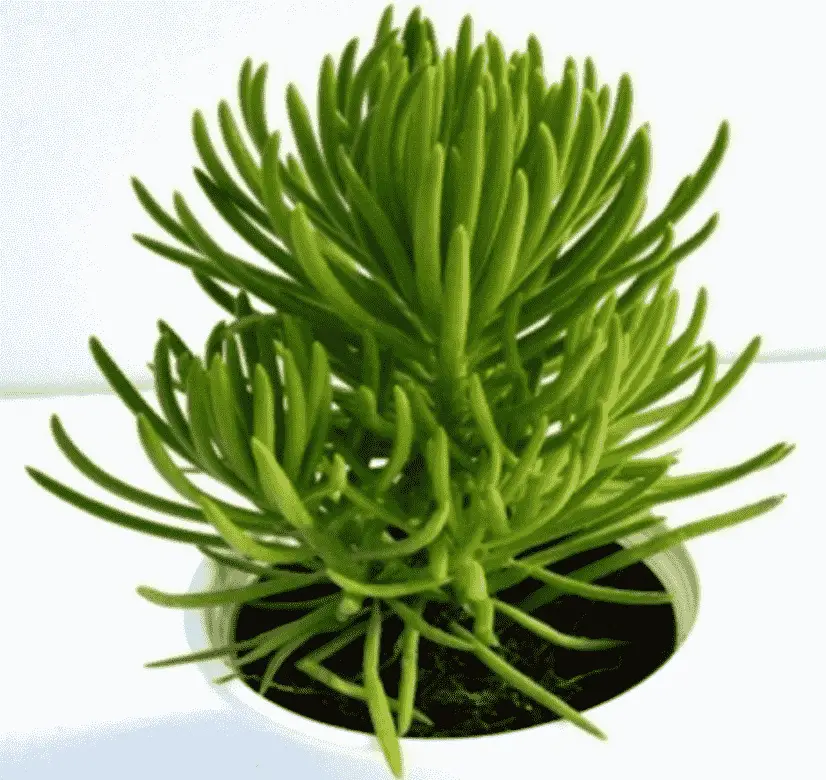
Senecio Barbertonicus 'Succulent Bush Senecio' Succulents Network
Senecio Barbertonicus (Succulent Bush Senecio) A native of Southern Africa, you are likely to grow the plant for its foliage and flowers. Also, it is drought resistant so it is easy to grow even in water-scarce areas. It does best in temperatures between 20 and 27 o C (68-80 o F) in the day time and 10-21 o C (50-70 o F) at night.

Lemon Bean Bush Senecio Barbertonicus Succulent Shop Nursery South
Senecio barbertonicus (succulent bush senecio) Senecio barbertonicus is a native of South Africa, where it can be found growing in the wild. This Senecio has long, cylindrical, light green leaves that are somewhat rigid and erect. They can grow up to 4 inches long. The flowers are small and bright yellow, and they appear in the winter.
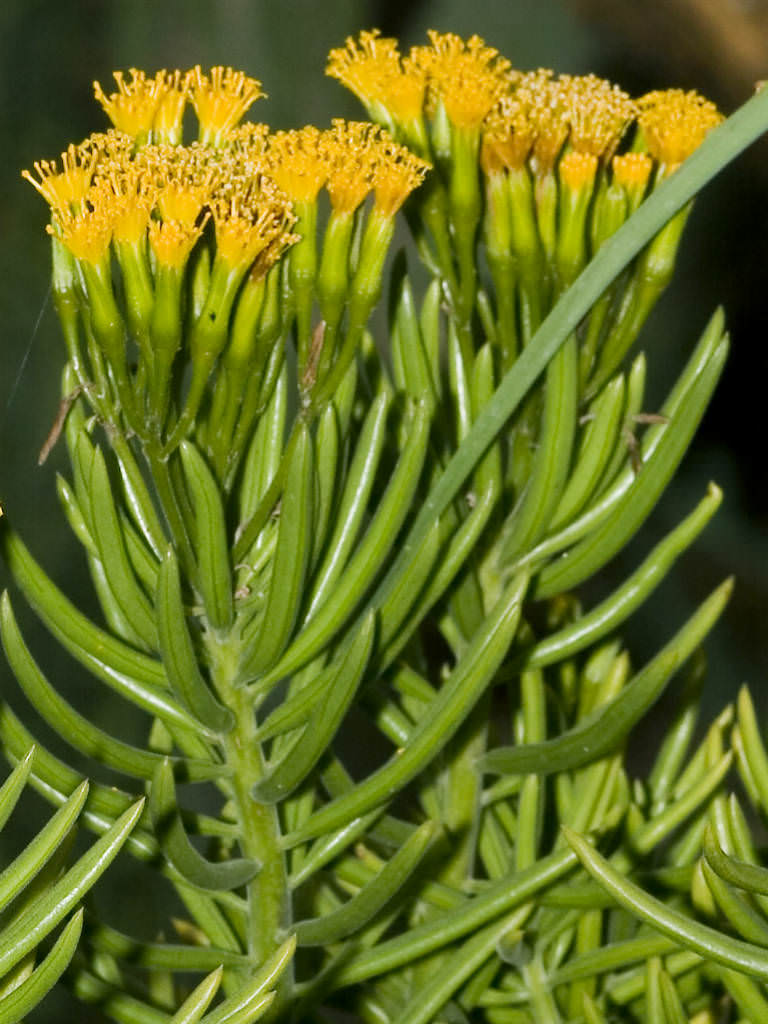
Senecio barbertonicus Succulent Bush Senecio World of Succulents
4.) Avoid Getting Water on the Leaves. Water on the leaves can cause them to rot, so be sure to avoid getting the leaves wet when you're watering your plant. 5.) Don'T Water Your Plant Too Often. You should only water your Senecio barbertonicus when the soil is dry. Watering it too often can lead to root rot.
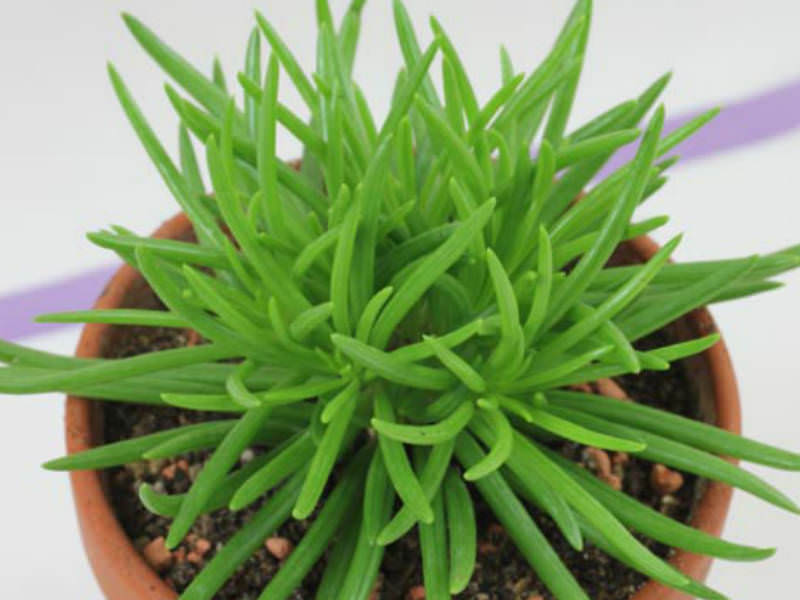
Senecio barbertonicus Succulent Bush Senecio World of Succulents
Senecio Barbertonicus Care Infographic. The Senecio barbertonicus of the Asteraceae family is a "must-have" in your garden due to its beautiful appearance that is enhanced by its cylindrical leaves and tubular yellow flowers.. This article is a step-by-step guide on how to take proper care of the Senecio barbertonicus plant. It also enlightens you on the problems that you should anticipate.

Senecio Barbertonicus (Succulent Bush Senecio) Succulent Varieties
Senecio barbertonicus, the Barberton groundsel or succulent bush senecio, is an evergreen succulent shrub of the family Asteraceae and genus Senecio, native to Southern Africa, named after one of its native localities Barberton and is now also being cultivated elsewhere for its drought resistance, clusters of sweetly scented, golden-yellow, tufted flower heads in winter and attractiveness to.
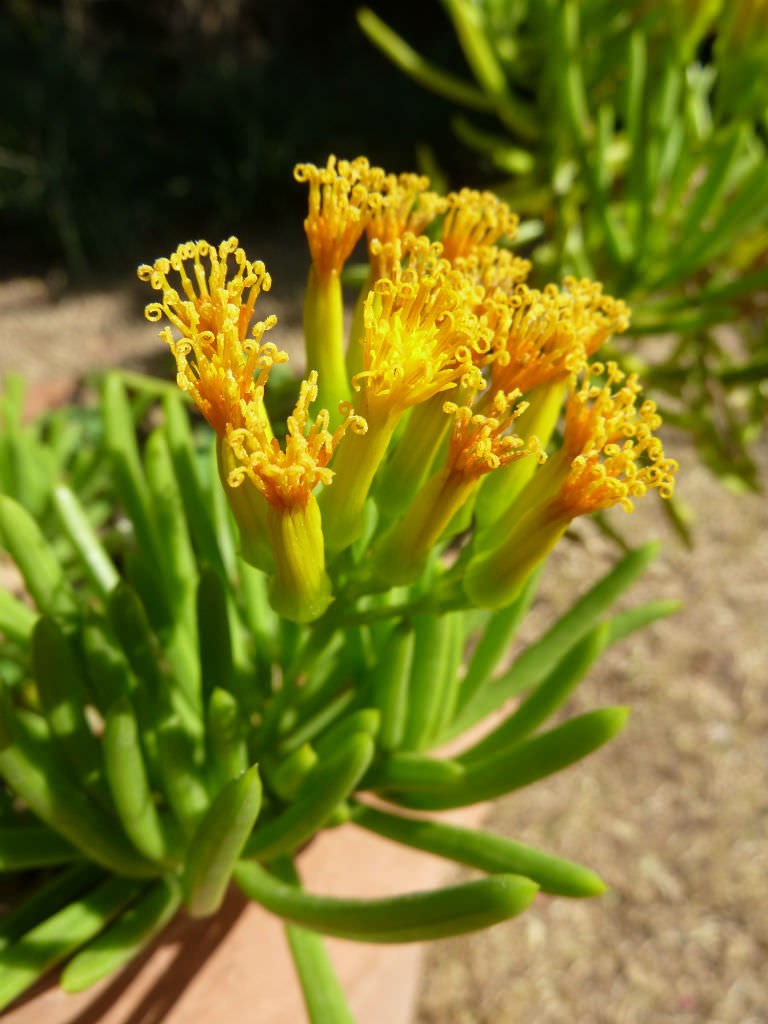
Senecio barbertonicus (Succulent Bush Senecio) World of Succulents
Succulent Bush Senecio | Senecio Barbertonicus Succulent Plant Care & Tips || How to grow & care Succulent bush senecio 🍀In this video you will see succule.
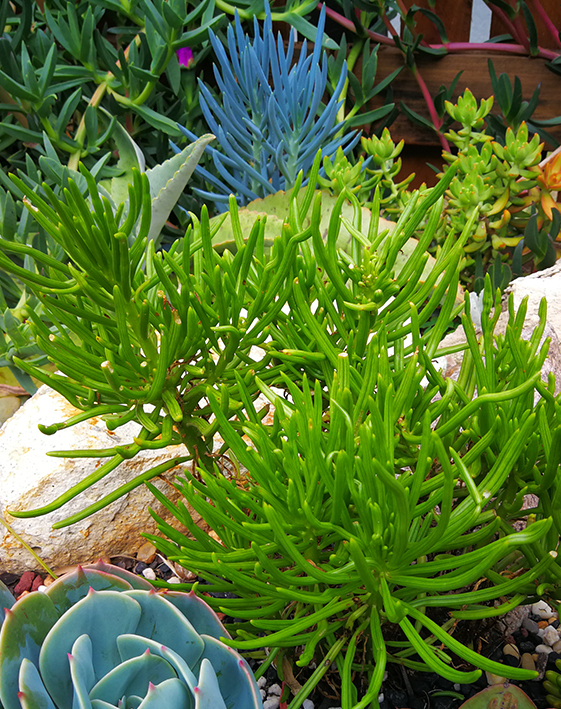
Senecio Barbertonicus (Succulent Bush Senecio) Succulent Varieties
Senecio barbertonicus. . Sun: full sun to partial shade. Water: Typical water needs for a succulent. Temperature: Zone 9a from 20° F to 25° F (-6.7 ° C to -3.9° C) Winter Survival: Not cold hardy. Propagation: cuttings. Flower: In the Spring. Flower Type:
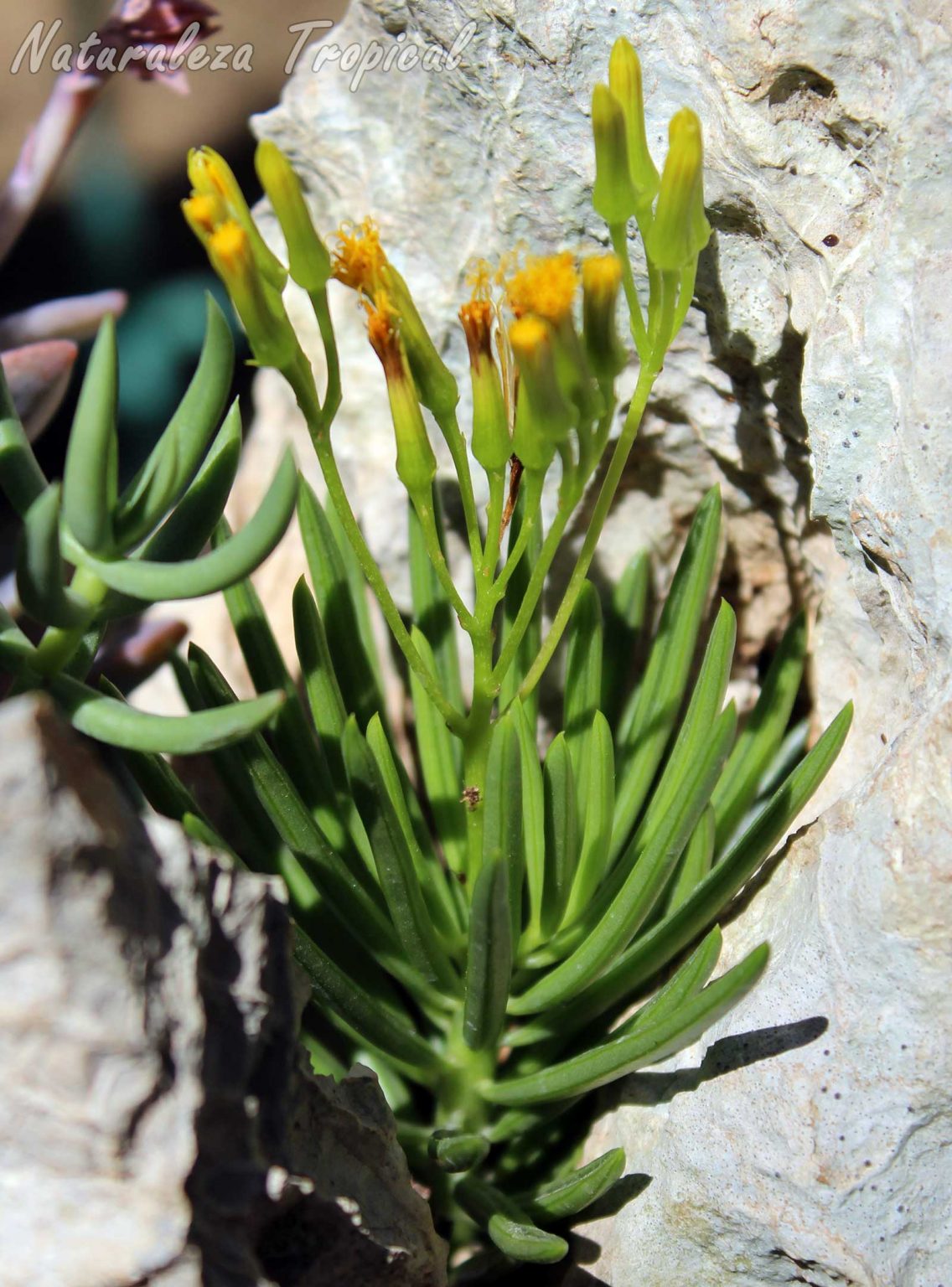
Conoce a la hermosa planta suculenta llamada Senecio barbertonicus
General Care for Senecio barbertonicus "Succulent Bush Senecio". "Succulent Bush" is the perfect succulent for adding variety and texture to your container gardens and arrangements. Because this "Succulent Bush" grows so tall, it can get heavy and could topple over. If it begins to flop, behead the top until the stem is firm again.
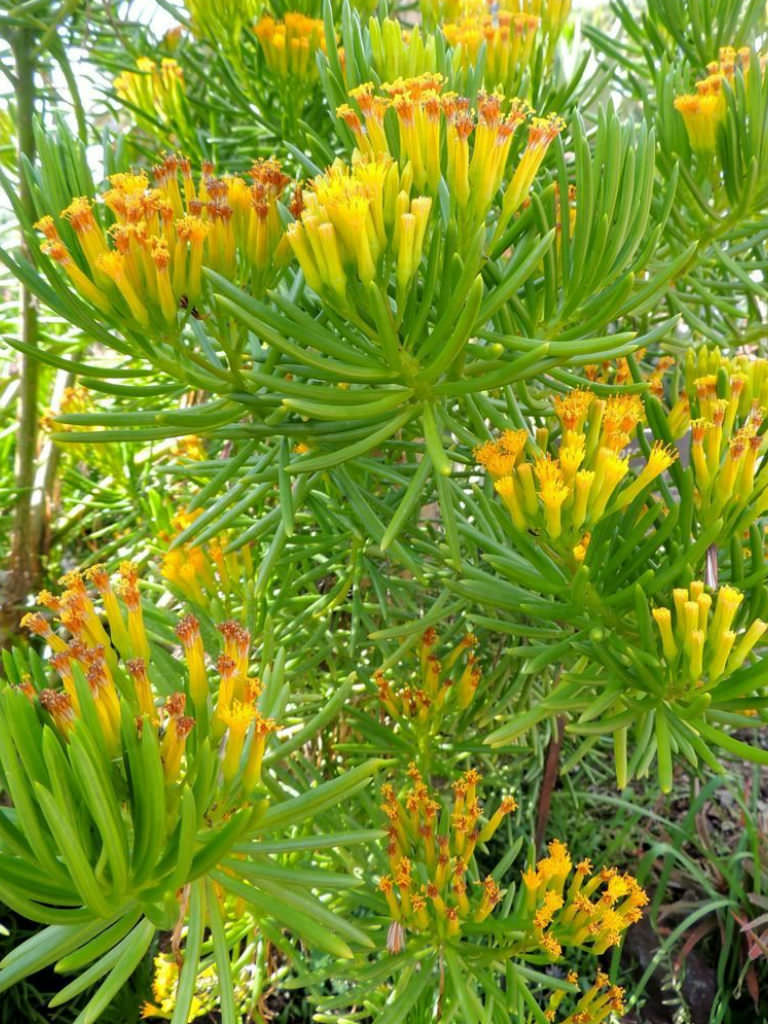
Senecio barbertonicus World of Succulents
Senecio barbertonicus also known as Succulent Bush Senecio. As the plant matures you can expect it to reach up to 1.5 m (40″) tall and about the same in diameter. The plants main feature are the green to dark green leaves that grow upwards. When the plant finally flowers you can expect it to produce yellow flowers from spring.
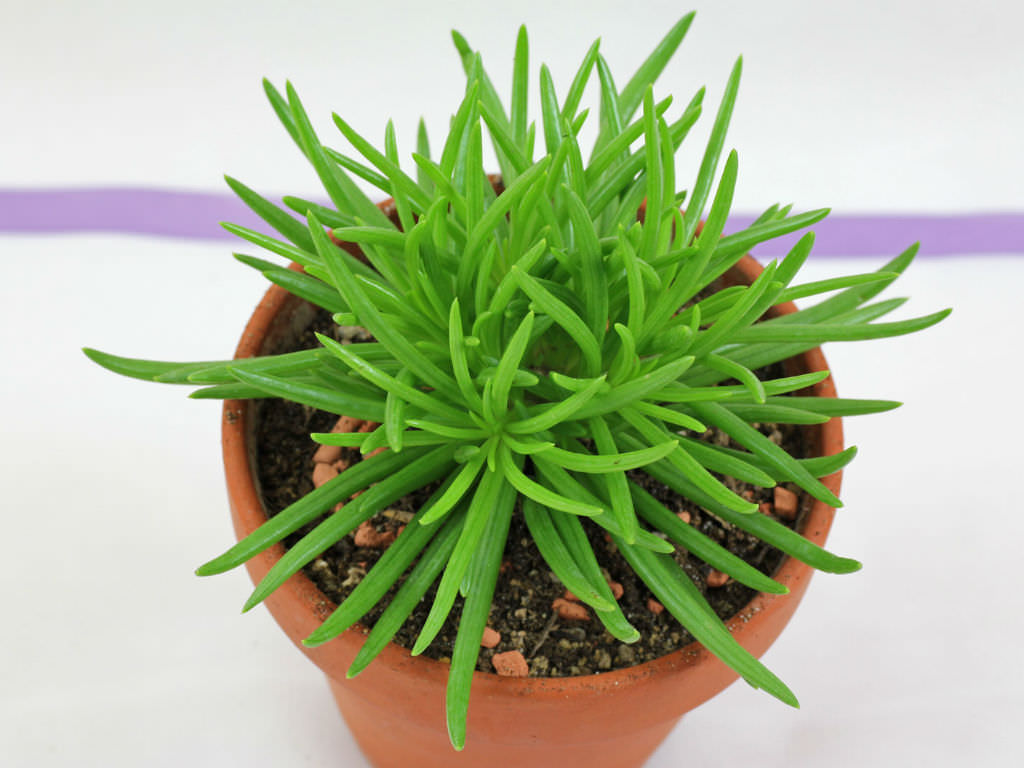
Senecio barbertonicus World of Succulents
The Senecio barbertonicus succulent is pretty much pest-free. Nevertheless, it can be affected by any common household pests. The most common pests to watch out for are mealybugs and aphids. Inspect your plant regularly for signs of pests to catch a possible infestation before it becomes severe.

Senecio barbertonicus World of Succulents
Senecio barbertonicus succulent plants are generally quite hardy and don't suffer from many pests or diseases. However, mealybugs, scale, and root rot can sometimes be a problem. Mealybugs. Mealybugs are small, soft-bodied insects that can infest a wide variety of plants.

Senecio barbertonicus (Succulent Bush Senecio) World of Succulents
About Succulent Bush Senecio. Senecio Barbertonicus succulent belong to the family Asteraceae. This succulent is also referred to as the daisy or sunflower Senecio (Curio) and its genus contains about 1600 species of shrubs, small trees, climbers, or aquatics. Senecio is one of the largest genres of flowering plants, so it shouldn't be a surprise that there are plenty of mesmerizing Senecio.
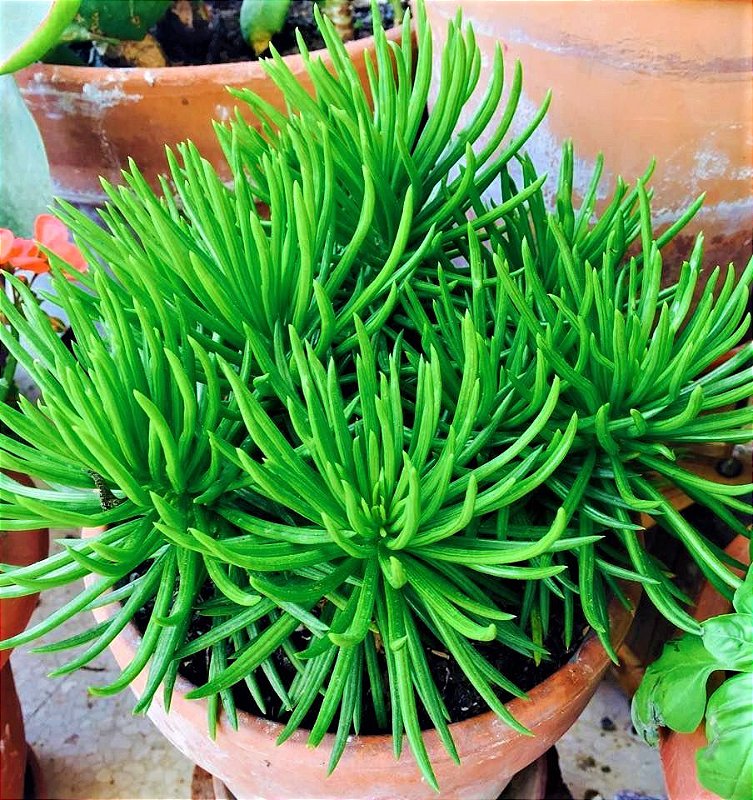
Muda de Senecio Barbertonicus Suculenta Jardim Exótico Mudas e Plantas
It receives the vulgar name of Senecio de Barberton. This species is native to South Africa. They are succulent bushy plants whose old stems become brittle and reach almost 2 meters high. Its fleshy cylindrical leaves are finger-shaped, end in a pointed, light or dark green color and have 3 to 4 longitudinal nerves.
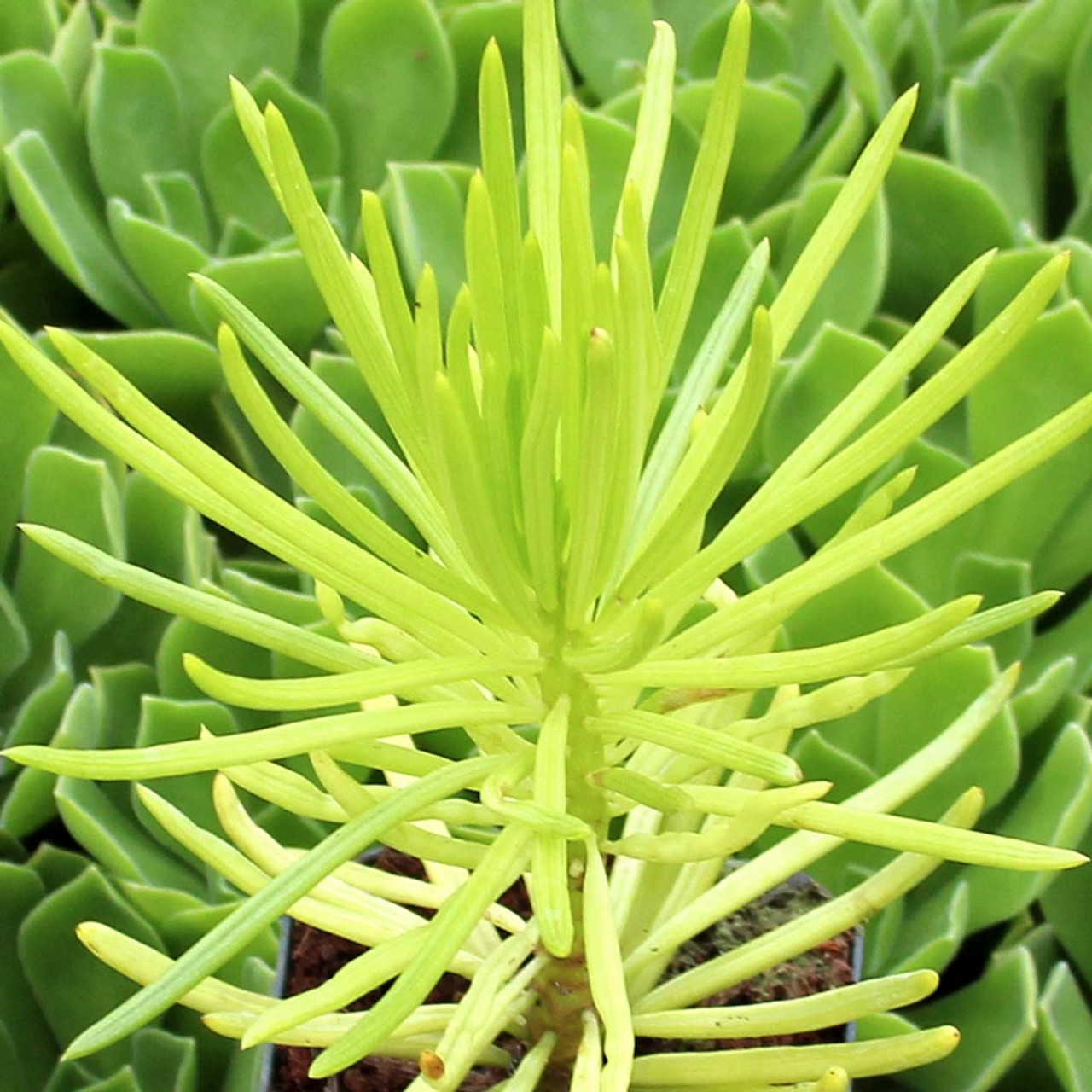
Senecio barbertonicus 'Himalaya' Mountain Crest Gardens
Senecio barbertonicus, also known as Barberton Daisy, is a South African endemic. It is a mountain plant that is endemic to the Barberton Mountain Conservancy and the surrounding areas of the Eastern Cape. The plant is a perennial and is used as decoration in gardens. In late summer, it produces a flower that is white with a yellow center and.

The Amazing Senecio Barbertonicus ‘Succulent Bush Senecio’ and Why It’s
Senecio barbertonicus (Succulent Bush Senecio) is a succulent shrub with light green cylindrical leaves densely packed around the stems…. View Plant Details. Senecio barbertonicus with a plant profile, including common names, scientific classification, brief description, origin, care tips, and photos.